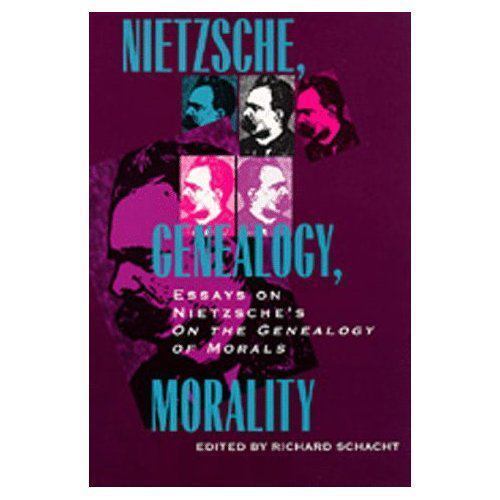Do you interested to find 'nietzsche genealogy of morals 1st essay'? Here you can find all of the details.
The first essay, "'Good and Evil,' 'Good and Bad'" contrasts what Nietzsche calls "master morality" and "slave morality." Captain morality was mature by the well-set, healthy, and freed, who saw their own happiness every bit good and titled it thus.
Table of contents
- Nietzsche genealogy of morals 1st essay in 2021
- Nietzsche morality as anti nature
- Nietzsche, genealogy, history summary
- Nietzsche genealogy of morals quotes
- Nietzsche genealogy of morals essay 1 analysis
- Nietzsche genealogy of morals summary
- Nietzsche first essay summary
- Nietzsche genealogy of morals essay 1 pdf
Nietzsche genealogy of morals 1st essay in 2021
 This picture demonstrates nietzsche genealogy of morals 1st essay.
This picture demonstrates nietzsche genealogy of morals 1st essay.
Nietzsche morality as anti nature
 This image shows Nietzsche morality as anti nature.
This image shows Nietzsche morality as anti nature.
Nietzsche, genealogy, history summary
 This picture demonstrates Nietzsche, genealogy, history summary.
This picture demonstrates Nietzsche, genealogy, history summary.
Nietzsche genealogy of morals quotes
 This picture representes Nietzsche genealogy of morals quotes.
This picture representes Nietzsche genealogy of morals quotes.
Nietzsche genealogy of morals essay 1 analysis
 This picture shows Nietzsche genealogy of morals essay 1 analysis.
This picture shows Nietzsche genealogy of morals essay 1 analysis.
Nietzsche genealogy of morals summary
 This picture demonstrates Nietzsche genealogy of morals summary.
This picture demonstrates Nietzsche genealogy of morals summary.
Nietzsche first essay summary
 This picture representes Nietzsche first essay summary.
This picture representes Nietzsche first essay summary.
Nietzsche genealogy of morals essay 1 pdf
 This picture shows Nietzsche genealogy of morals essay 1 pdf.
This picture shows Nietzsche genealogy of morals essay 1 pdf.
How did Friedrich Nietzsche come up with the idea of good?
Now, first of all, it’s obvious to me that from this theory the essential focus for the origin of the idea “good” has been sought for and established in the wrong place: the judgment “good” did not move here from those to whom “goodness” was shown!
Where does the word " bad " come from in Nietzsche?
In support of his argument, Nietzsche remarks on the similarity between the German word for "bad" and the words for "plain" and "simple." By contrast, he notes, in most languages, the word for "good" derives from the same root as the words for "powerful" or "masters" or "rich."
What does Nietzsche mean by " master morality "?
Master morality is the morality of the masters, the nobles, the warriors, who see themselves and their actions as good. Thus, strength, power, health, wealth, and happiness are all considered "good." These masters then perceive what Nietzsche calls a pathos of distance between themselves and those who are poor, unhealthy, weak, or impotent.
Who are the slaves in Nietzsche's Genealogy of morals?
In this passage, Nietzsche identifies slave morality with a priestly caste, though he identifies it elsewhere with the plebs or the slaves. These people are the poor, the unhealthy, the weak, and the impotent, and they learn to hate and resent the power and health of the masters.
Last Update: Oct 2021